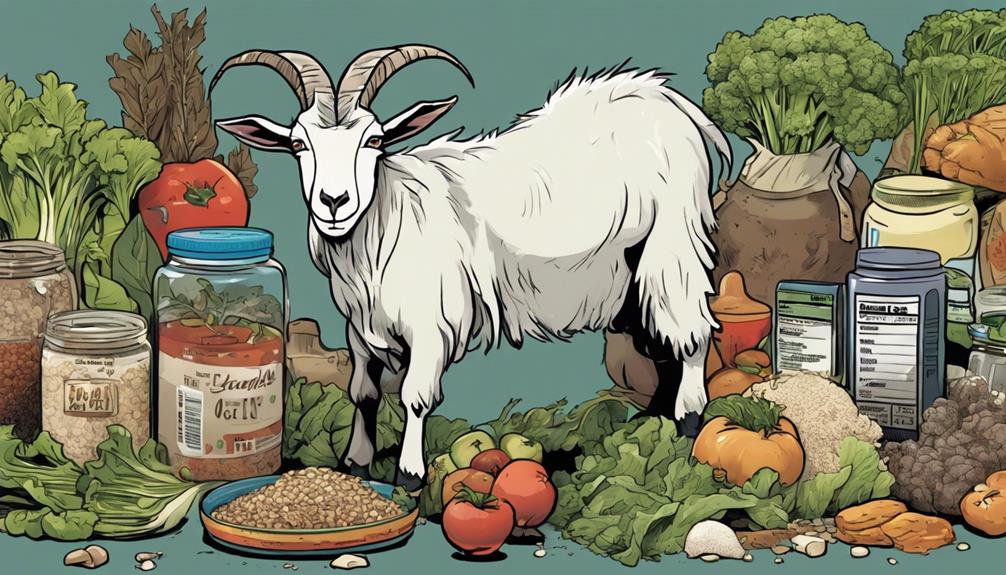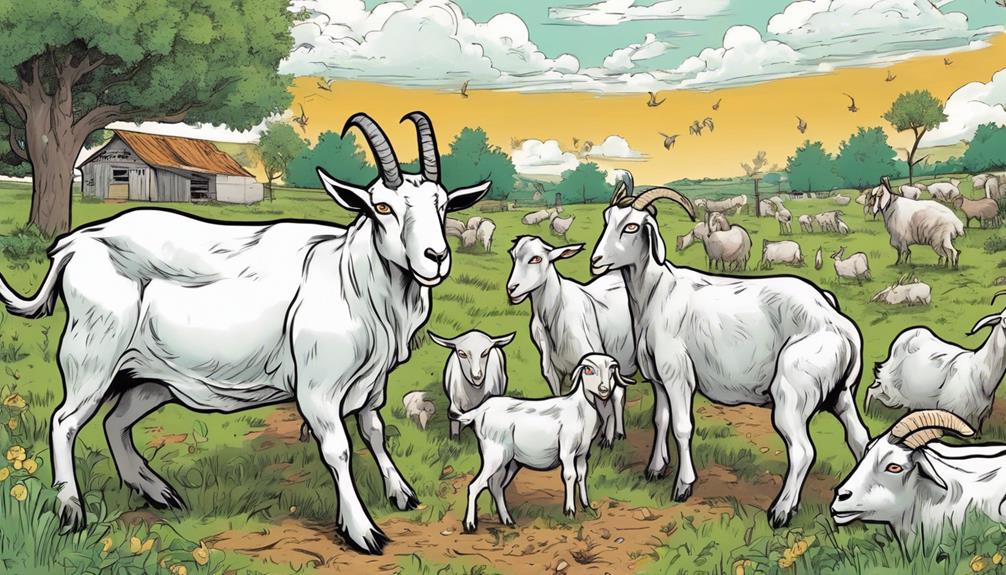Caring for goats requires knowledge of their health issues, including respiratory and hoof problems. A straightforward method to keep your goats healthy is regular check-ups and preventive care.
Ensure they have a balanced diet, clean water, and a clean living environment. Quick identification and treatment of ailments are crucial. This approach helps maintain their health, avoiding complex issues.
Here in homesteaders info blog we talk alot about livestock farming and specially goats. Read this article about baby goats teeth problems and this blog on a home remedy you can use for sick goats.
Regular hoof care and prompt treatment are crucial for goat health and comfort. Nutritional balance with essential minerals and vitamins is vital for goats' overall well-being. Preventive measures like parasite control, vaccination, and clean environments are essential for goat health. Quick veterinary consultation and proactive healthcare practices are key in preventing and managing respiratory issues in goats.
Common Respiratory Ailments in Goats
Goats often face respiratory problems like pneumonia, lungworm infections, and contagious caprine pleuropneumonia.
Look out for symptoms such as coughing, nasal discharge, and hard breathing. Sick goats might eat less, lose weight, and produce less milk.
To keep goats healthy, make sure their living space has good air flow, is clean, and not too crowded. See a vet quickly if you spot any sickness signs. Acting fast helps goats recover better.
Identifying and Treating Hoof Issues
To keep your goats moving easily and stay healthy, you need to spot and fix hoof problems like hoof rot, hoof scald, and abscesses quickly. Here’s how:
- Check Hooves Often: Look at your goats’ hooves a lot to catch infections or damage early. Bad smells, swelling, or pus mean there might be hoof rot or an abscess.
- Trim Regularly: Keep hooves in good shape by cutting them back often. This stops them from getting too long and helps avoid hoof issues.
- Act Fast on Problems: If you see any hoof problems, such as limping or signs of infection, get help from a vet right away. Fixing it might need trimming, putting medicine on the hoof, draining abscesses, or giving antibiotics for infections.
Nutritional Deficiencies: Symptoms and Solutions

To keep your goats healthy and performing well, it’s key to fix any nutritional shortfalls quickly. Signs that your goats mightn’t be getting enough nutrients include a rough coat, weight loss, less milk, and slow growth.
These issues often come from not having enough minerals like copper and selenium, or vitamins A, D, and E.
Wrong amounts of calcium and phosphorus can also cause weak bones, poor growth, and breeding problems.
To fix these problems, add the right minerals and vitamins to your goats’ food. Make sure their food is balanced and high quality to help prevent and solve nutritional shortfalls.
learn how to treat mud scald in goats
Managing Parasitic Infections in Goats
If your goats lose weight, have a bad coat, show signs of anemia, or feel weak, they might have parasites. These could be internal like worms, or external like lice, mites, and ticks. Signs include weight loss, bad coat, anemia, diarrhea, and weakness.
Here’s what you should do:
1. Do Regular Fecal Tests: It’s key to check their poop regularly to find and track any parasites, helping you pick the right treatment.
2. Manage Pastures Well: Keeping pastures clean and rotating where your goats graze helps stop parasites from spreading.
3. Use Deworming Plans: Work with a vet to figure out the best way to prevent and treat parasites in your goats.
Try this home remedy for sick goats
Preventive Care Practices for Goat Health

Give your goats deworming treatments regularly, every 4-6 weeks, to keep internal parasites away and keep them healthy. Make sure they’ve a shelter with good air flow and clean bedding to avoid breathing problems.
Feed them a balanced diet with clean water, minerals, and forage to prevent nutritional deficiencies. Vaccinate your goats against diseases like tetanus, enterotoxemia, and caseous lymphadenitis to help them fight off these illnesses.
Check their health often, watch for signs of sickness, and keep everything clean to catch and treat health issues early. Following these steps will help your goats stay healthy and happy.
whats is coccidia in goats and how to treat them?
Frequently Asked Questions
What Is the Best Diet for Goats?
For goats, the best diet comprises high-quality hay or pasture, grains, minerals, and fresh water. A balanced diet rich in fiber, vitamins, and minerals helps maintain health and productivity. Avoid toxic foods. Consult experts for tailored plans.
What Are the Nutritional Requirements for Goats?
To meet a goat’s nutritional needs, ensure a balanced diet of roughage, concentrates, minerals, and clean water. They require protein, energy, vitamins (A, D, E), and minerals (calcium, phosphorus, copper, zinc). Good quality forage like hay is crucial for digestion and health.
What Is a Good Grain Mix for Goats?
For your goats, a good grain mix includes 16-18% protein for nutrition, essential minerals like calcium and phosphorus for health, and grains like oats and corn for energy and fiber. Avoid chemicals and consult experts for balance.
Which Feed Is Best for Goat?
For your goats, a diet rich in high-quality forage like grass and legumes is best. Supplement with minerals, vitamins, and possibly grain. Avoid toxic foods, and always provide fresh water. Consult experts for a tailored feeding plan.

3 thoughts on “A Comprehensive Guide To Goat Aliments”